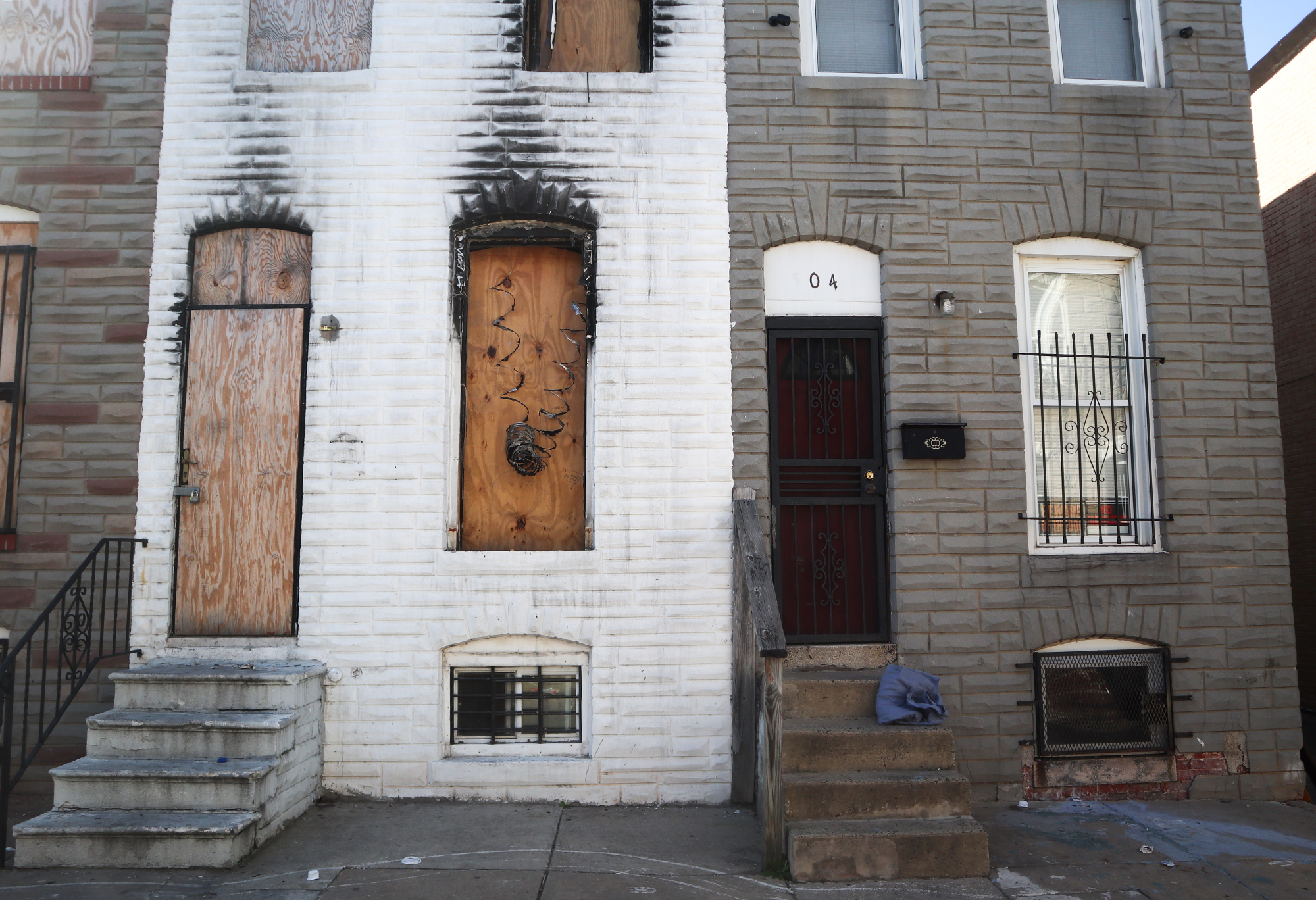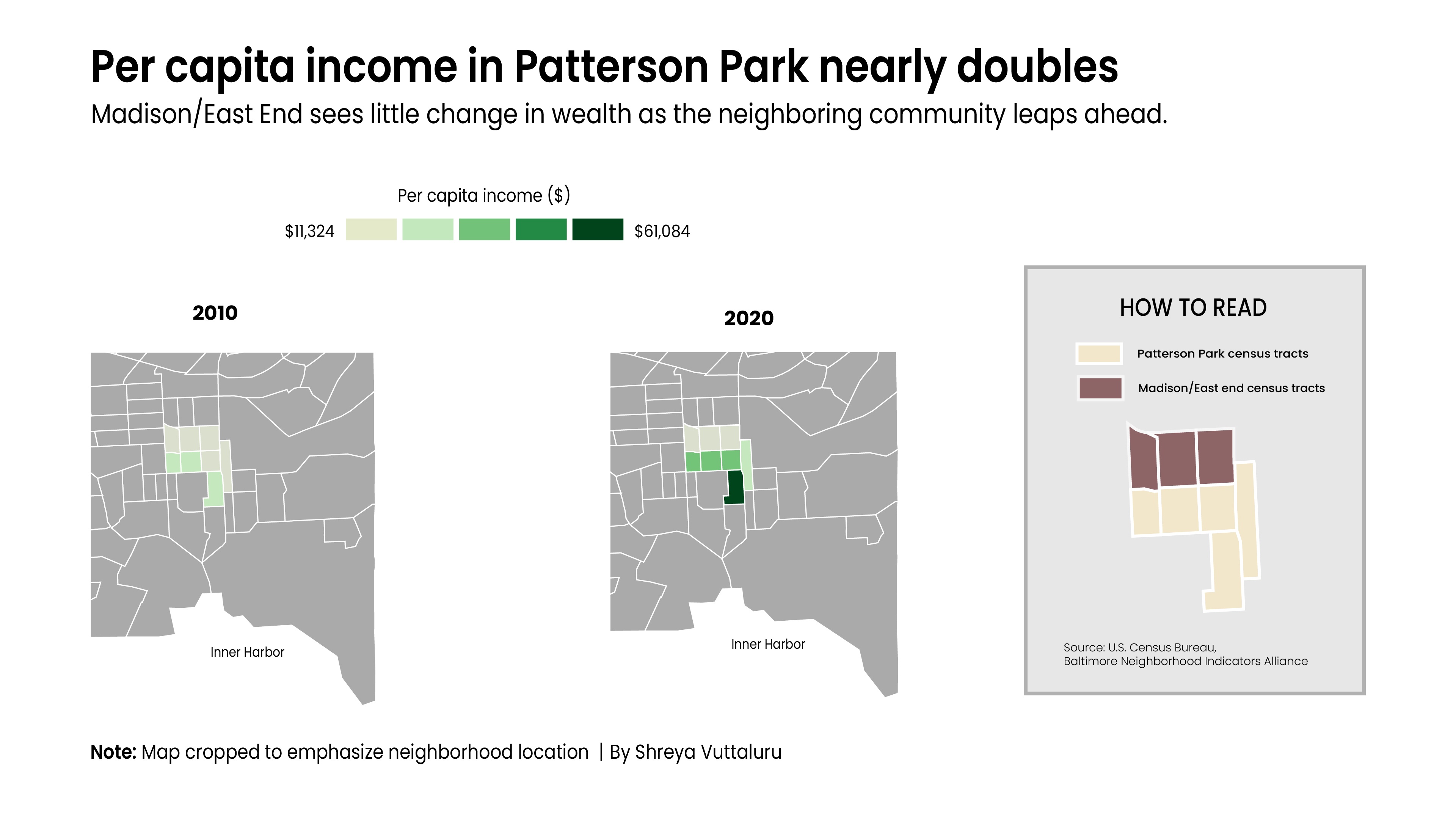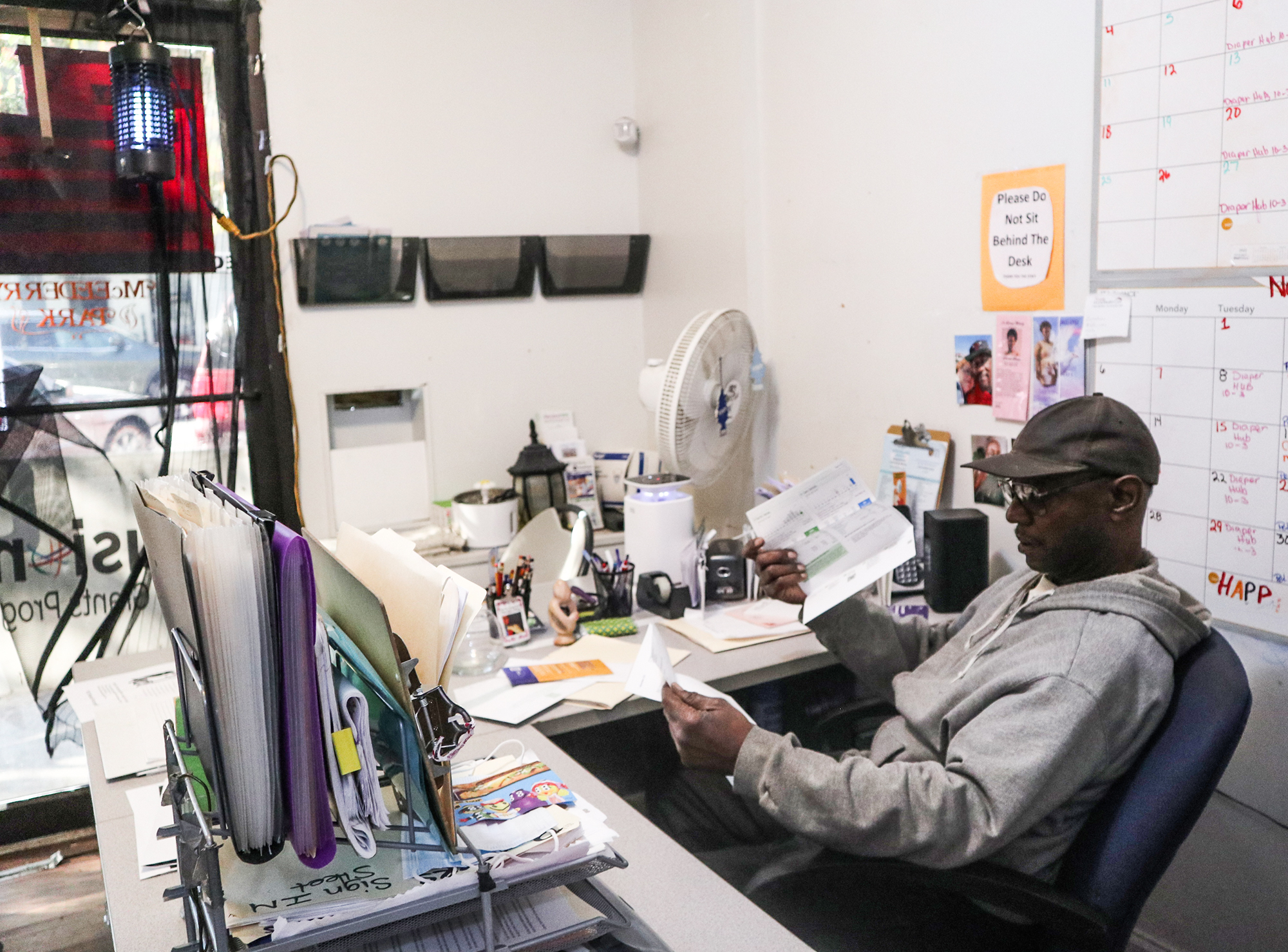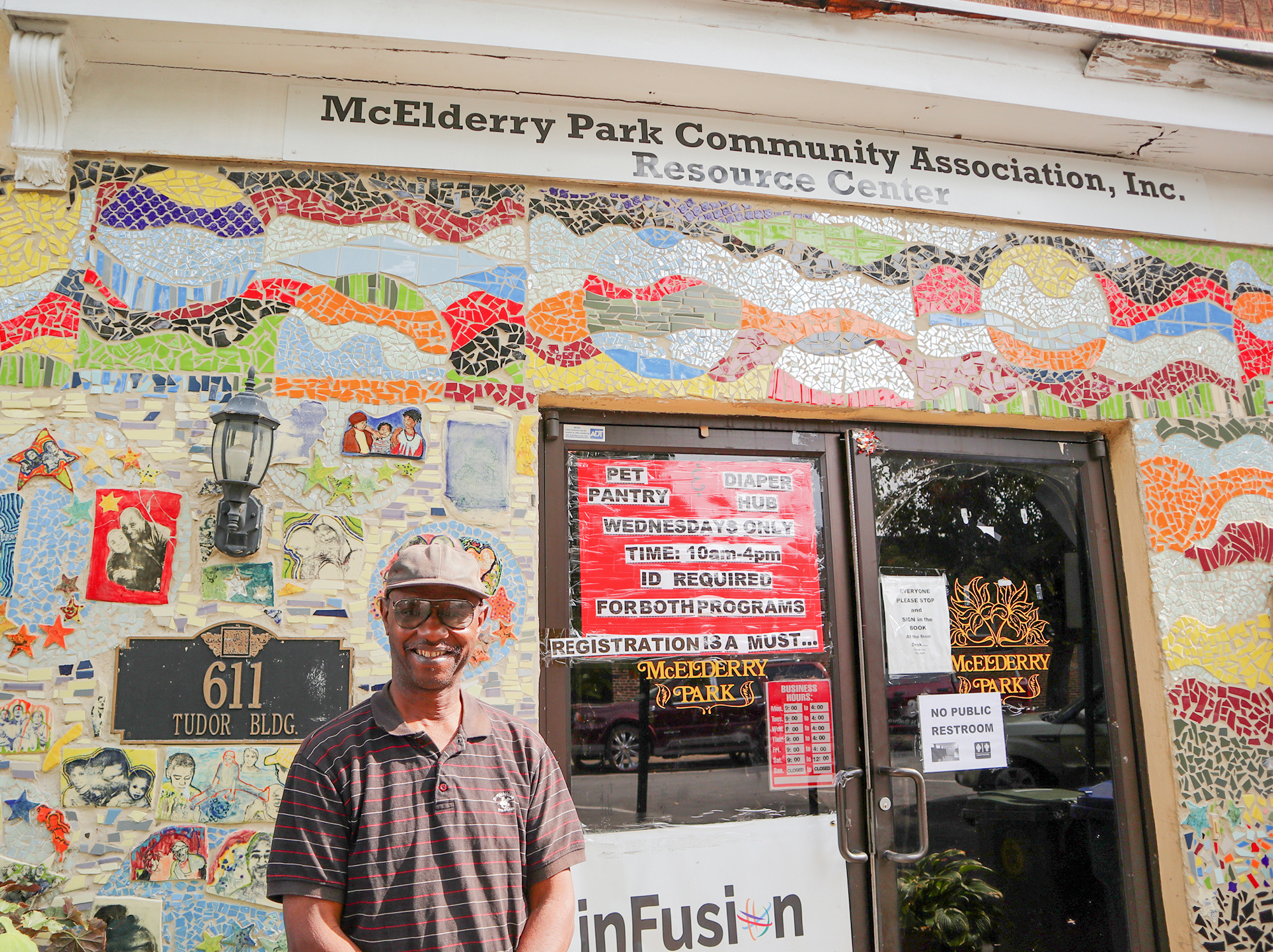Development and real estate is picking up in McElderry Park, a struggling East Baltimore neighborhood, but community activist Ernest Smith fears the development will force low-income people to leave the neighborhood.
“When people begin to redevelop the homes and properties, many times those properties are being redeveloped at prices that people in these areas cannot afford,” said Smith, treasurer of the McElderry Park Community Association, which is trying to combat displacement of the poor.
The McElderry Park Community Association, decorated with glittering mosaics and portraits of residents, is literally a bright spot on North Montford Avenue. Inside, Smith and his fellow board members are trying to boost the community through youth education and mentoring programs, trash pickup, a new homeownership coalition and simple door-to-door advocacy.
As a community in transition, about 22% of housing units in McElderry Park were owner-occupied in 2020, according to the Baltimore Neighborhood Indicators Alliance (BNIA). In addition, BNIA found that nearly 19% of residential housing in 2020 was vacant and abandoned.

A low homeownership rate and a high amount of vacancies leave room for landlords and outside developers to redevelop properties, which normally would be a good thing, but also increases the cost of living, forcing people out of their rentals, Smith said. Residents are moving west and into neighborhoods where housing is still affordable, Smith said, although “the conditions are very much similar to where they just left because that’s all they can afford.”
The coronavirus pandemic slowed displacement because many residents used rental assistance programs to stay in McElderry Park, but now “a lot of that support is going away,” Smith said. “The stabilization was very good in the last two to three years. And now we can see things beginning to destabilize.”
Cross Jefferson Street and you enter Patterson Park, and a strikingly different picture.
In 2020, Patterson Park saw nearly 48% of its residential homes owner-occupied, according to BNIA. Vacant homes are also less frequent in Patterson Park with 3.5% of residential homes reported as abandoned, according to BNIA.
The per-capita income for the McElderry Park area in 2020 was $13,736, well below the federal poverty line, according to a Capital News Service analysis of census data. Patterson Park, however, saw its per-capita income rise to $39,107 in 2020, a $14,882 increase since 2010.
 “Patterson Park is certainly wealthier than McElderry Park and you don’t have to look at data to see that,” said Ernest Le, Patterson Park Neighborhood Association president. In McElderry Park, some residents are focusing on day-to-day survival and don’t have the time or resources to beautify their homes, he said.
“Patterson Park is certainly wealthier than McElderry Park and you don’t have to look at data to see that,” said Ernest Le, Patterson Park Neighborhood Association president. In McElderry Park, some residents are focusing on day-to-day survival and don’t have the time or resources to beautify their homes, he said.
David Harris, the president of the McElderry Park Community Association, described the disadvantages of a low homeownership rate and people rotating in and out of the community.
“If you’ve got people in transient communities such as ours, the shift is we don’t have ownership in our neighborhoods like they have in wealthy community neighborhoods,” Harris said. “If we don’t have that type of ownership, then a lot of people are not going to pour in resources, and they’re going to find ways to see how they can get the property to have ownership and displace us, and move us out of those communities.”
The McElderry Park Community Association is looking to set up a housing coalition run by five community members that would use programs to promote homeownership and help others acquire properties.
“One of the things that we’ve learned is we cannot sit still and wait for someone to come and do this for us. We have to go and do it ourselves,” Smith said.

One problem both communities face is illegal trash dumping.
In McElderry Park, “We try to every day clean up the trash and yet we don’t get that much support,” Harris said. “I can call 311 multiple times and I’m not getting it. Like, we’re seeing drug needles. We’re seeing addicts who don’t live in our community come into our community and leave their trash.”
Even though these problems are difficult, longtime McElderry Park residents such as Lance Cooper admire the association’s work. “The McElderry Park association has been a great help to a lot of families and a lot of people in the McElderry Park community,” Cooper said.
In Patterson Park, Le said most of the trash comes from construction sites “more than sort of like a neighbor who improperly disposes of their trash.”
The McElderry Park Community Association currently runs different programming to address problems their neighbors are facing, such as a Cleaning and Greening program to pick up trash and keep the neighborhood’s green spaces clean. Eugene Brown, vice president of the McElderry Park association, leads a group of community members that identify trash hotspots in the area and prepare the trash for pickup.
“We can have them clean as much as we possibly can. We’re not homeowners, but it will help possibly to see where your money is going and that effort is what really counts,” Brown said. “I want to enjoy a cool soda. I want to come out in my yard and hook my grill up, have a nice cookout. I don’t want to see trash and stuff.”


You must be logged in to post a comment.